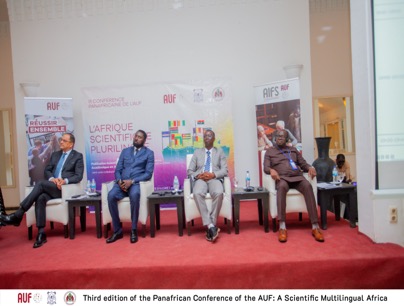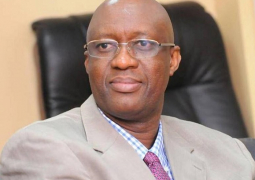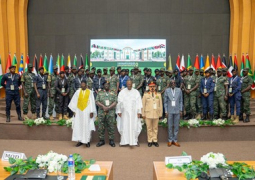
The conference took place from 25 to 26 April 2024. This year’s confab was centred on the theme: ‘Scientific Publication and Academic Mobility in Multilingual Africa: Towards Enhanced Regional Collaboration’.
The two-day convergence was aimed at bringing together higher education stakeholders in the subregion to explore the challenges and opportunities associated with scientific publication in a multilingual African context. Its goal was to promote academic mobility as a lever for research development in Africa and strengthen regional collaboration between higher education and research institutions.
The conference was chaired by the Regional Director of the Agence Universitaire de la Francophonie (AUF), Professor Ouidad Tebbaa.
Representing the President of the Republic of The Gambia, the Honourable Minister of Foreign Affairs, International Cooperation and Gambians Abroad, Dr Momodou Tangara, deliberated on AUF’s commitment to upholding the pleas made in Praia and Ziguinchor in Senegal on the shared dedication to the promotion of scientific research and excellence. Minister Tangara stressed the importance of the delegation's presence in the Gambia in presenting unique opportunities to partner in relevant and key areas of scientific research and publication.
Minister Tangara highlighted some of the AUF's significant achievements in The Gambia in the areas of higher education and scientific research.
Minister Tangara encouraged AUF partner countries to put the language barrier aside, embrace their multilingual diversity, and foster their common development goals.
The Rector of the Agence Universitaire de la Francophonie (AUF), Professor Slim Khalbous, spoke at the inauguration of the 3rd AUF Conference. He expressed delight in the President of the Republic of The Gambia, His Excellency Adama Barrow, who received them at the Office of the President.
He also expressed delight in Minister Professor Pierre Gomez, who, he said, has been AUF's close ally and partner in implementing its goals in The Gambia over the years.
Professor Khalbous went on to highlight key areas of interest, amongst which is the interregional collaboration of partner countries in addressing key issues confronting their development, especially in the areas of research and innovation. He also talked about universities’ key involvement in academic research in addressing employability issues and specific challenges confronting African countries.
The Honourable Minister of Higher Education, Research, Science and Technology, Professor Pierre Gomez, stressed that a university’s standard is measured by the level of publication and available research infrastructure. Thus, he encouraged academic publication and research. He maintained that these levels of collaboration are crucial, especially in breaking the language barriers confronting AUF member countries.
Prof. Gomez emphasised the significance of the event in fostering scholarly collaboration in the area of research, allowing for more exposure and shared experience. Prof. Gomez also encouraged research culture among scholars to better inform policy decisions, break linguistic barriers, and impart changes in society.
Prof. Herbert Robinson, the Vice-Chancellor of the University of The Gambia, said scientific research is crucial for members of the academic cadre in addressing key challenges, especially in areas of agriculture, science, and the economy. He stressed the need for addressing related challenges in climate change, food security, and energy amongst others, and further noted that all these challenges can be addressed through scientific academic research and publication.
Prof Robinson also stated that low academic publication rates affect African countries more than our developed Western counterparts and noted that academic research is pivotal in addressing linguistic barriers.
Read Other Articles In Headlines





